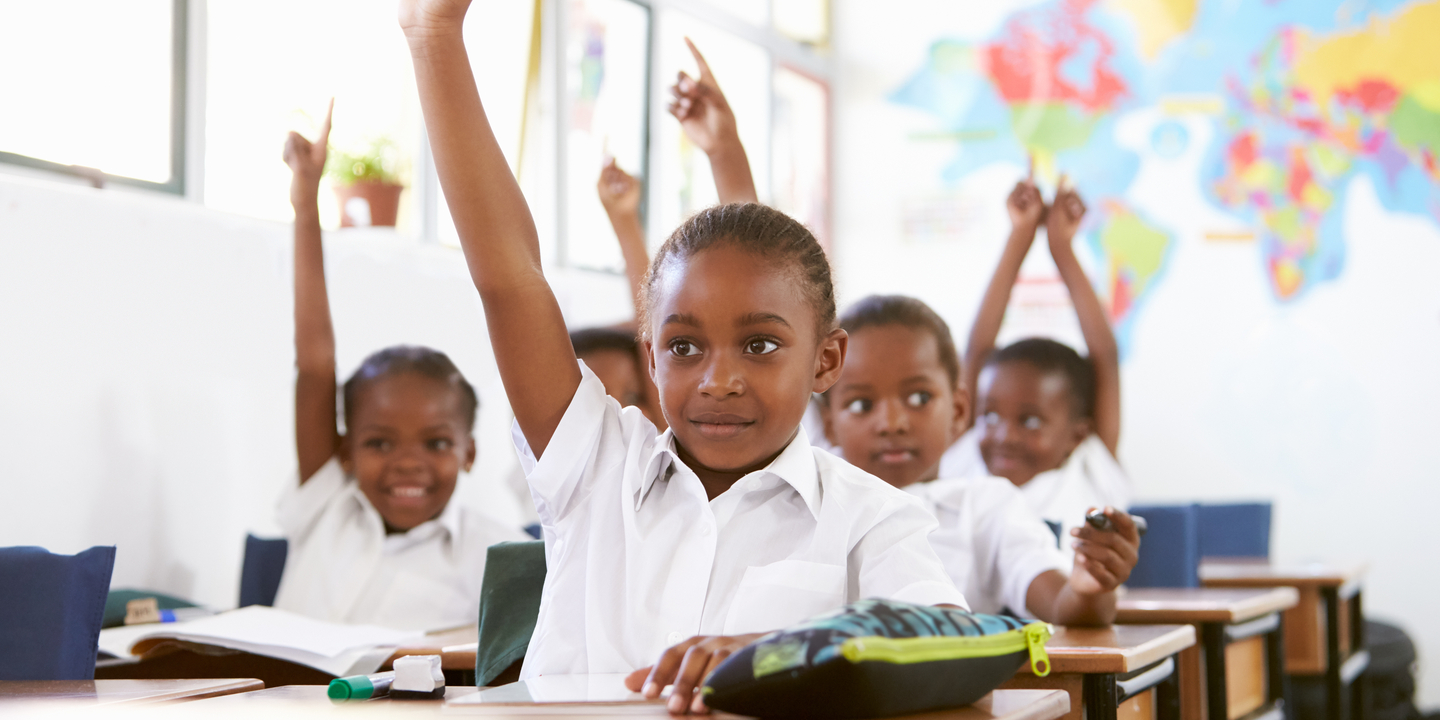
Improving learning in sub-Saharan Africa
ACER news 14 Jun 2022 7 minute readACER is helping to improve the quality of education for children in sub-Saharan Africa.
Before the COVID-19 pandemic, sub-Saharan Africa had the highest rate of children not learning, with nine out of 10 children between 6-14 years not meeting minimum proficiency levels in reading and mathematics. There is a concern that these numbers have been exacerbated by educational disruptions caused by the pandemic.
Quality, equity and access to education are critical to improving learning and are at the core of ACER’s growing number of initiatives in sub-Saharan Africa. ACER is making an impact by strengthening education systems and reforming policies and practices. Partnering with ministries of education, key policymakers and international and not-for-profit organisations operating in the region, we are building local, national and regional capacity to address key priorities and challenges in education.
Our work to improve the quality of education in sub-Saharan Africa focuses on these key areas:
Monitoring and responding to the impacts of COVID-19
The Monitoring Impacts on Learning Outcomes (MILO) project was designed to analyse the long-term impacts of COVID-19 on children’s learning in six African countries – Burkina Faso, Burundi, Côte d’Ivoire, Kenya, Senegal and Zambia. Focusing on the learning outcomes of children at the end of primary school, the study also enabled governments to measure learning progress towards United Nations Sustainable Development Goal (SDG) 4.
A UNESCO Institute for Statistics (UIS) project, MILO was funded by the Global Partnership for Education (GPE). ACER was the technical partner, with support provided by the Global Education Monitoring (GEM) Centre, a long-term strategic partnership between ACER and the Australian Government’s Department of Foreign Affairs and Trade.
Supporting the implementation of SDG 4
We are conducting regional capacity-building workshops with UNESCO’s Teaching and Learning Educator’s Network for Transformation (TALENT), which supports the implementation of SDG 4 in sub-Saharan Africa. Eighteen African countries participated in a workshop to strengthen national capacity to report and communicate the results of large-scale assessments to improve the effectiveness of education systems. Tying in with this important topic, another workshop focussed on using learning assessment data for educational planning and decision-making. Other workshops have enabled countries to develop a clear and shared understanding of assessment to inform teaching and learning and create tools for its use in the classroom.
Supporting civil society to improve quality and equity in education
ACER is a Global Learning Partner for GPE’s Education Out Loud programme for 2022-2024. ACER’s research, planned to be undertaken in two countries in Africa and one in Asia, will focus on how civil society organisations contribute to improving quality and equity in education through different approaches of education advocacy and policy influencing. The research findings will document successful approaches and how these can be leveraged to influence education policies, and to facilitate action at local, regional and system levels to meet the needs of communities, including vulnerable and marginalised children.
Integrating learning through play into classrooms
ACER supports the LEGO Foundation's Learning Through Play (LtP) Programme in Rwanda. With an aim to build the capacity of 29,000 primary school teachers to integrate play-based learning into their classrooms, LtP benefits approximately 1.45 million children in Rwanda. Our baseline study will examine what is needed to achieve project objectives, capacity of systems, and skills, knowledge and attitudes of participants related to play-based learning.
Ensuring refugees receive quality education
In South Sudan, we are helping to refine a program that aims to provide quality education for refugee children. With children comprising nearly one-third of the 800,000 South Sudanese refugees, our baseline survey will track progress of the Integration and Mainstreaming of Refugee Children into the Sudanese Education System programme and importantly, inform national policies that integrate refugee children within the country's mainstream education system.
Teaching children at the right level
In Zambia, we contributed to the scale up of the Catch Up programme running in 1,800 Zambian schools between 2017-19 with a midline evaluation. The program focused on strengthening literacy and numeracy skills of students in Grades 3 to 5 to ensure they are being taught at the level of their ability. Our evaluation examined the skills of students, resources, key factors affecting program success and progress against the implementation plan.
Improving girls’ education
We have helped to advance the educational opportunities of girls in Zambia through an evaluation of the Ministry of General Education’s Zambian Girls 2030 programme implemented in 2016-18. Our endline study sought to understand whether the program had achieved its aim to improve educational and employment opportunities for 12,300 girls in senior and senior secondary schools, and to ascertain whether it was sustainable and scalable.
Supporting teacher and student innovation
In 2020-21, ACER contributed to Aga Khan Foundation’s Schools2030 programme, a 10-year participatory learning improvement program based in 1,000 government schools across 10 countries. Schools2030 supports teachers and students to design and implement low-cost and scalable innovations to improve holistic learning outcomes for marginalised learners. ACER conducted a review of learning assessments and developed initial assessment tools for mathematics and reading to measure the relationship between locally developed solutions in primary and secondary school classrooms and learning outcomes.
ACER’s strategic partnerships with educational policymakers and global organisations continue to grow in the region, enabling us help improve quality and equity of education for children. ACER is an official partner of UNESCO and has a Long Term Agreement with UNICEF for the provision of evaluation services across East and South Africa. We also have a five-year partnership with VVOB and work closely with a number of likeminded organisations working to improve learning in the region.
To ensure children in sub-Saharan Africa are learning, evidence is needed to improve and reform education. ACER is committed to gathering high-quality evidence and data to drive educational system improvements to ensure all children have access to quality education. ■
Further reading
Learn more about ACER's education and development work.
Learn more about the GEM Centre.